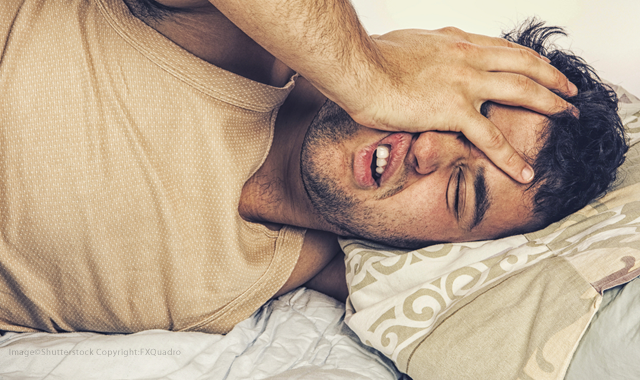Study finds obstructive sleep apnea causes complications in dental implants
The study examined the relationship between OSA and damage to implant-borne prostheses.

Both obstructive sleep apnea and sleep bruxism are linked to several health issues; however, no previous studies linked obstructive sleep apnea (OSA) to prosthetic complications. Now, new data demonstrate a strong correlation between OSA and complications with previously implanted oral prosthetics.
Researchers from OSI Araba University Hospital in Victoria, Spain published a study in the Journal of Oral Implantology that investigated how OSA affects implant-borne prostheses. The frequency with which a complication occurred and the type of complication were studied in 67 patients. Contradictory to their initial hypothesis, the researchers found a high instance of complications related to OSA.
Trending article: A good night's rest: Why sleep apnea treatment is critical
Of the 67 patients included in the study, the researchers found that 16 experienced complications; 13 of which had OSA. Among these 16 patients with complications, there were 22 prostheses with a total of 30 issues. The researchers found these complications consisted of porcelain fracture, fracture of the screw/implant, loosening of the screw and decementation. The average time for a complication to occur was 73 months post-implantation.
During the study, the researchers also noted a strong relation between individuals who suffer from OSA and those who suffer from bruxism. Past studies revealed that those afflicted with bruxism had a higher instance (6/10) of complications with implant prostheses than those without bruxism (13/75). This shows that people suffering from OSA and/or bruxism have a more difficult time with successful prosthetic implantation.
The researchers note that, “Among dental practitioners, there has been increasing awareness of the reciprocal relationship between obstructive sleep apnea (OSA) and dental diseases. One new aspect of interest would be the occurrence of technical complication in fixed prosthodontics."
Trending article: Mouthbreathers at higher risk of tooth decay
This study shows that 81% of patients with OSA experienced complications with their prostheses. Given that the success rate of implants is reported to be between 92 percent and 97 percent, there is a strong correlation between OSA and prosthetic complications. The researchers believe that additional exploration on the correlation between OSA and implant complications is necessary to further understand the risk factors and frequencies of these occurrences.
Full text of the article, “Frequency of Prosthetic Complications Related to Implant-Borne Prosthesis in a Sleep Disorder Unit,” Journal of Oral Implantology, Vol. 43, No. 1, February 2017, is available at: http://joionline.org/doi/full/10.1563/aaid-joi-D-16-00100